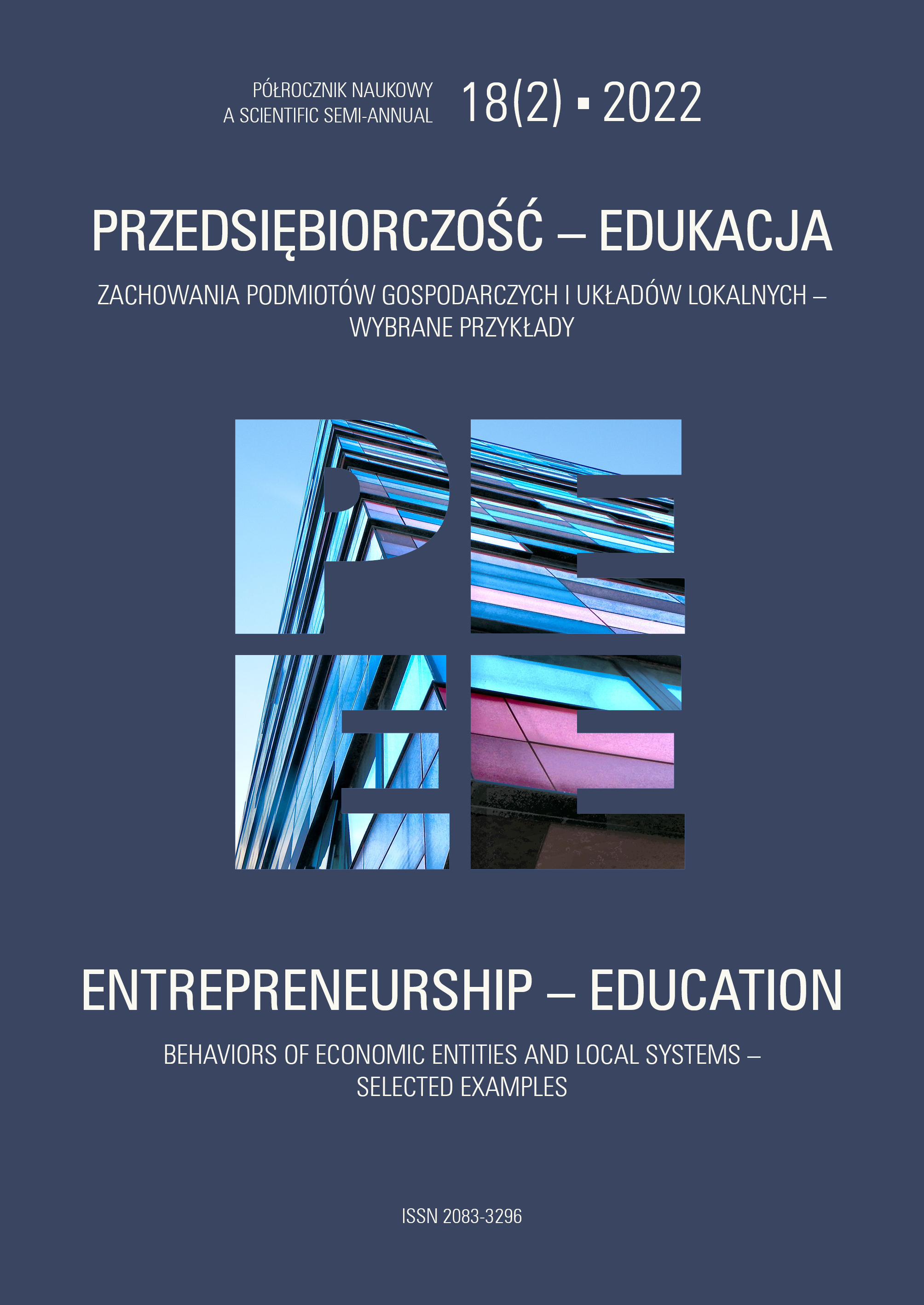International trainings as a method of deepening skills by teachers of vocational courses from the catering industry case study of Poland, Lithuania and Latvia
DOI:
https://doi.org/10.24917/20833296.182.4Keywords:
international trainings, vocational training, catering industry, professional competenceAbstract
The aim of the article is to analyse the role of international trainings for teachers of vocational courses from the catering industry. The hypothesis presented in the article is: international training has an impact on the improvement of skills of vocational teachers. This study was prepared on the basis of a survey conducted on a sample of 40 teachers representing vocational schools with a gastronomic profile from Lithuania, Latvia and Poland. The conclusions from the research confirm that the teaching staff clearly needs training that would allow them to expand their theoretical knowledge, practical skills and social competences. Teachers of vocational courses pointed out that the basic motivation for participation in the training is the necessity to raise professional competences in the context of the core curriculum of vocational schools with a gastronomic profile. In addition, training in an international group allows them to get to know the specificity of the work culture and practices used in different countries. It should be added that the research confirmed that after the international training, according to teachers, there was a significant increase in their professional skills. This has a measurable impact on the later work with pupils at school.
References
Drogosz-Zabłocka, E., Stasiowski, J. (2019). Kształcenie zawodowe w Polsce – przemiany, organizacja, efekty. W: U. Sztanderska, E. Drogosz-Zabłocka (red.), Wykształcenie zawodowe. Perspektywa systemu edukacji i rynku pracy, Seria Naukowa, t. 9. Warszawa: Fundacja Rozwoju Systemu Edukacji, 66–101.
Fazlagić, J. (2012). Jakość szkoleń dla polskich nauczycieli. E-mentor, 4, 69–76.
Geisler, R. (2018). Zapotrzebowanie na kwalifikacje w wybranych obszarach kształcenia zawodowego obszar turystyczno-gastronomiczny, branża hotelarsko-turystyczno-gastronomiczna. Kraków: Małopolskie Obserwatorium Rozwoju Regionalnego Departament Polityki Regionalnej Urząd Marszałkowski Województwa Małopolskiego.
Iwacewicz-Orłowska, A. (2021). Motywy i korzyści z uczestnictwa w zagranicznych praktykach zawodowych uczniów szkół ponadpodstawowych z województwa podlaskiego. Przedsiębiorczość Edukacja, 17(2), 137–150.
Markiewicz-Patkowska, J. Oleśniewicz, P. Lasota, S. Sołtysik, M. (2016). Środki wsparcia z Unii Europejskiej a diagnoza potrzeb edukacyjnych i rozwój innowacyjnych form kształcenia dla branży turystycznej. Ekonomiczne Problemy Turystyki, 2.
Mazik-Gorzelańczyk, M. (2016). Kształcenie zawodowe w Polsce w perspektywie zmian i potrzeb gospodarki. Warszawa: Friedrich-Ebert-Stiftung, Przedstawicielstwo w Polsce.
Pawelec, L. (2017). Kursy, szkolenia i warsztaty dla nauczyciela – wymóg czasów współczesnych. Annales Universitatis Mariae Curie – Skłodowska Lublin – Polonia, Sectio J, Paedagogia – Psychologia, 3, 205–216.
Safin, K. (2018). Analiza branży hotelarsko-gastronomicznej w województwie lubelskim. Raport końcowy z badań ilościowych i jakościowych. Lublin: Wojewódzki Urząd Pracy w Lublinie.
Starczewska, M. (2016). Projekty mobilności finansowane z funduszy unijnych jako przykład współczesnej formy kształcenia kadr dla potrzeb obsługi ruchu turystycznego. Ekonomiczne Problemy Turystyki, 33, 125–134.
Worek, B., Jelonek, M., Kocór, M. (2017). Czy nauczyciele uczą się przez całe życie? Kompetencje i aktywność edukacyjna nauczycieli. Edukacja, 1(104), 85–107.
Downloads
Published
How to Cite
Issue
Section
License
Copyright (c) 2022 Entrepreneurship – Education

This work is licensed under a Creative Commons Attribution-NoDerivatives 4.0 International License.
Articles are published under the terms of the Creative Commons License (CC BY-ND 4.0; Attribution– NoDerivs).

